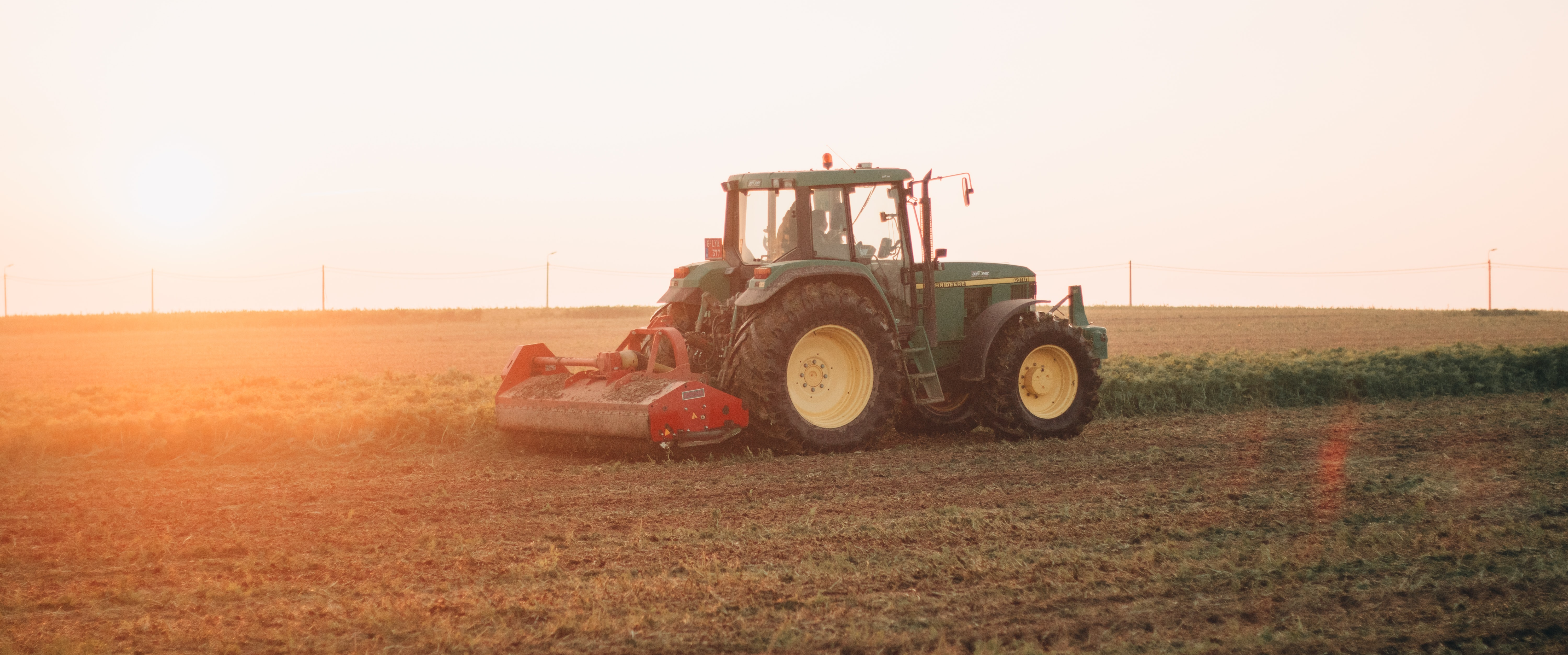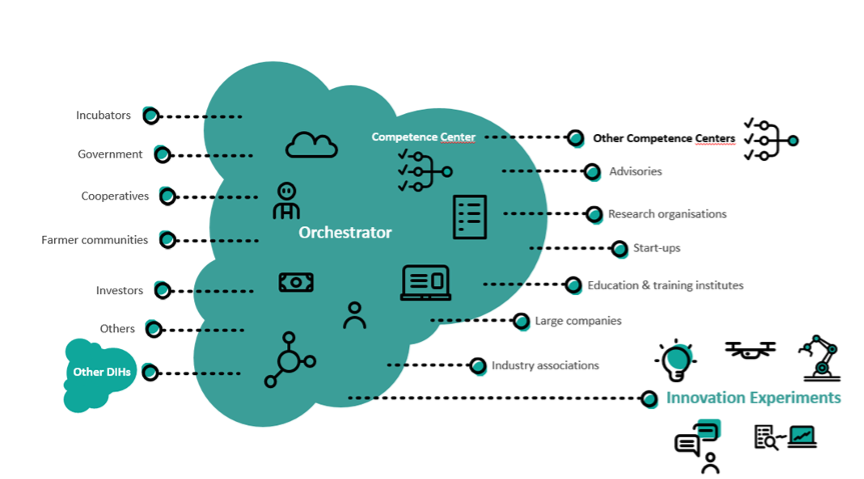Providing the opportunities of SAH project for the process of digitalization to support ongoing processes and approaches

Across Europe, a lot of activities and funding are on the way to accelerating digitalization. Drones, sensors, clouds and other innovations promise many new visions and opportunities. The introduction of digital technologies already contributes to producing more sustainable food, preventing emissions, improving animal welfare, promoting biodiversity and reducing workloads as well as keeping rural areas attractive. It is still a challenge to make the best possible use of these opportunities taking into account sustainable answers to data protection, data security and data sovereignty issues.
Digital solutions ensure better and more efficient crop management. Complex processes such as the silage-maize or sugar-beet harvest can be monitored in real-time and organized collectively. Feeding robots, measuring devices to analyze the composition of milk or climate management systems contribute significantly to animal welfare and environmental protection.
Digital trial fields
In Germany, the Federal Ministry of Food and Agriculture (BMEL) has provided funds of more than EUR 50 million over the next three years to harness the potential of digitalization in agriculture. Funded by the BMEL, 14 digital trial fields are located all over Germany on agricultural holdings and can be used to perform tests and to promote digitalization in agriculture. The trial fields are intended to help research digital technologies in arable farming and animal breeding and test their practicability. Start-ups can also take part in the projects. For interested practitioners, the trial fields serve as points of contact that provide information on digitalization opportunities in agriculture. The competence network on "Digital technologies in the agricultural sector" provides comprehensive knowledge of digitalization and agriculture to support and guide the trial fields as well as offers scientific support and enhance synergy effects.
Eight of the 14 trial fields are up in the area of crop production, three on animal husbandry and three interdisciplinary trial fields. More information on the trial fields is available on https://www.bmel.de/EN/topics/digitalisation/digital-trial-fields.html.
Collaborative projects to improve animal health and welfare
Within the framework of the Innovation Promotion Program, the BMEL is funding application-oriented research and development with a total of around 12.5 million euros. 13 collaborative projects use digital solutions to improve animal health and welfare, reduce the workload of farmers and increase traceability along the livestock value chain.
With the measure "DigiTier - Digitisation in livestock farming", a networking and transfer measure was launched to ensure high visibility and sustainable broad impact of the funded projects. Through targeted events and public relations work, the innovation processes and knowledge transfer of the projects are supported. Cross-sectoral cooperation between the individual collaborative projects and other actors from science and industry is to be established. Synergies with other projects in the innovation funding program and other relevant funding programs should be leveraged. Information on the measure “DigiTier” and the 13 collaborative projects is available on https://www.digi-tier.de/.
Measurement of air quality, temperature and light conditions with sensors or the detection of animal sounds and animal movements with cameras and microphones to improve animal welfare is carried out in further projects (e.g. SmartPigHome).
Challenges and solutions
For many years, agriculture has already gone digital in many respects. Information technology and electronics have played a key role in farmers' everyday lives. Digital applications provide support in many areas (plant production, animal husbandry, precision farming, farm machinery).
Nevertheless, there are still key questions:
- • What are the implications of the digital transformation for the agricultural sector?
- • How can farmers, the environment and consumers benefit equally from the new opportunities?
In addition, the digital projects show challenges that still need to be resolved:
- • Appropriate training and extension services must be provided. Farmers are not IT experts and need good information to help them make decisions on whether to acquire technology.
- • The reliability of technology must be improved.
- • More research must be carried out on the benefits of digital farming.
- • Rules must be laid down on data protection, data safety, data sovereignty and other conditions (e.g. regulations on air traffic for the use of drones).
In general, the Horizon 2020 project SmartAgriHubs (SAH) can provide support to stimulate and accelerate the digital transformation of the European agri-food sector by means of
- • The Flagship Innovation Experiments (FIEs)
- • The innovation portal with all the tools and communication opportunities and
- • Building and expanding a European network of supporting the Digital Innovation Hubs (DIHs).
Digital Innovation Hub
DIHs are a one-stop-shop and are related to companies, end-users, farmers, research institutes, start-ups, digital innovation projects and competence centres of the entire agrifood sector. Innovation services are provided to build up the ecosystem and businesses as well as to introduce digital technology. Bringing together stakeholders from different areas, DIHs enable the exchange of information between different interest groups. The aims of DIHs are to present future developments and to discuss with stakeholders opportunities for optimizing conditions. DIHs are working with practitioners, scientists, entrepreneurs and administration staff.
 DIHs promote research as an integral part of a comprehensive strategy on digitalization in agriculture. The goal is to promote innovations from the field of digital agricultural technologies in order to improve resource efficiency. By reducing the amount of fertilizer, plant protection products and fuel, sustainability can be enhanced and animal welfare improved while simultaneously the workload can be reduced and productivity sustainably increased.
DIHs promote research as an integral part of a comprehensive strategy on digitalization in agriculture. The goal is to promote innovations from the field of digital agricultural technologies in order to improve resource efficiency. By reducing the amount of fertilizer, plant protection products and fuel, sustainability can be enhanced and animal welfare improved while simultaneously the workload can be reduced and productivity sustainably increased.
DIHs are leading the process of establishing an efficient digital infrastructure. The objective is to help shape the framework for digital farming in such a way that farmers, the environment and consumers can benefit equally from the new opportunities and the potential risks can be reduced.
 Hubert Gerhardy, lead of the RC North West Europe
Hubert Gerhardy, lead of the RC North West Europe